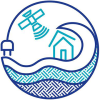Developing the expected levels of performance
Once the PILNA proficiency scales were created, analysts had a way to take student scores on the PILNA assessments and assign a proficiency level to them.
These proficiency levels describe student performance in terms of the general cognitive abilities they possess in the domain (numeracy, reading, writing). To link a student’s performance to developmental norms, it was necessary to define what expected performance was.
The purpose of defining the expected level is to provide a reference point for the countries and indicate the minimum standard of performance for students who have gone through four and six years of schooling.
This provides richer comparisons than simply comparing PILNA scores over time. It provides information about how student scores compare with developmental norms.
This needed to be established for both year fours and year sixes in numeracy and reading. Note that writing is not included because, as mentioned in previous sections, the writing proficiency scale has not yet been developed. This process will need to be repeated for the writing domain when the writing proficiency scale is established.
To define what expected performance was in these areas, subject experts in English and mathematics from were tasked to identify reference points for numeracy and literacy for years four and six on the proficiency scales.
These reference points were discussed, focusing on the specific skills and knowledge that are represented at each level of the associated proficiency scales. Expected levels of performance for each year level and each domain were finalised, based on how well these reference points mapped to regional indicators of student performance in numeracy and literacy.
The expected performance for year four and year six students in numeracy was set at proficiency level three and proficiency level five respectively.
The expected performance for year four and year six students in reading was set at proficiency level four and proficiency level five respectively.








